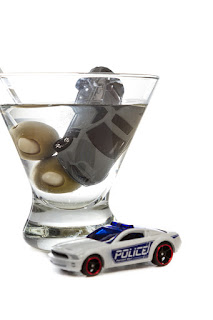While every case is different, most Fort Walton Beach DUI cases follow the same general track. If you’ve never been arrested for a DUI before, you may find the court process confusing and intimidating. Below is an overview of what to expect.
Arrest
After arrest, you will be taken to one of the local police precincts in Okaloosa County. The Fort Walton Beach area has numerous precincts for specific geographic areas. You will be taken to one based on the area where you were arrested.
Once at the station, your mugshot will be taken, as well as your fingerprints. The officer will ask you for biographical data, such as your name, date of birth, and home address.
The officer may also ask you questions about what happened, such as whether you had anything to drink. Do not answer any questions that might incriminate you! Tell the officer you want to consult with a lawyer immediately.
After you are booked and processed, you may be released on citation. Your car may have been impounded, so you may need to call a cab or have someone pick you up. Active duty service members may have to wait until someone picks them up from their chain of command, depending upon their branch of service and duties. Most people held are held overnight.
First Appearance
If the Fort Walton Beach police department decides to hold you, you will be taken to the Okaloosa County Department of Corrections (the county jail). Early the next day, you will see a representative from Pretrial Release Services for a screening for bond purposes. Each person arrested since the last First Appearance will be gathered from their holding cell, lined up in a group, and taken to the video court room. The judge will be at one of the two county courthouses (Fort Walton Beach or Crestview, FL) and your first appearance court date will be by video. The judge will determine if you should be released, and if so, on what conditions.
Personal recognizance is your promise to return for court. You may have conditions such as no alcohol or drugs, or pretrial supervision.
A bail bond means you or a bonding company will pay money to the court to ensure your appearance. The judge determines the bond amount.
Held without bond means that the judge has determined you are a danger to the community and that there is no reasonable assurance you would return for court. Retaining a local DUI defense lawyer is a good idea. Your case may have “red flags” that could effect bond that a lay person who never spot.
Arraignment (AKA “Plea Day” in some counties)
In DUI arrests, you will usually be given a Florida Uniform DUI Citation with a court date, time and location. This court date is not for a trial. This court date is correctly called arraignment, according to the Florida Rules of Criminal Procedure, but in Okaloosa and Walton Counties it is called “Plea Day” by unofficial local rule. Knowledge of local rules is important: Plea Day is also the last time to change a plea of not guilty to one of no contest or guilty before trial in Escambia and Santa Rosa counties. Same name, different meaning.
Written pleadings should be filed prior to arraignment. A Waiver of Arraignment will excuse you from court and you avoid sitting around the courthouse all day, just to enter a plea of Not Guilty. Ask about how written pleadings can be used to avoid most time wasting Fort Walton Beach criminal court appearances.
Never plead no contest or guilty at arraignment unless advised to do so by a DUI defense attorney experienced enough to know the handful of times when this is the best option. The best are board certified specialists.
Status Hearings
Status hearings may involve many different legal matters. For instance, evidence discovery, motion requests, changes of plea and negotiated diversion conditions are a few of the things decided in court at such hearings.
Trial
At trial, witnesses are called and evidence is presented. At the conclusion of the trial, the prosecutor and your attorney will make arguments. After receiving jury instructions, the jury will decide.
Talk to the Only Florida Bar Board Certified Fort Walton Beach Criminal Defense Attorney in Okaloosa County
If you still have questions or are in need of representation, contact a top Fort Walton Beach DUI defense attorney, Stephen G. Cobb. He is board certified in Florida criminal law. Free consultation. Call us at 850-651-6565 today.
Cobb Law Firm
5 Clifford Dr
Shalimar, FL 32579
(850) 651-6565
References:
http://articles.sun-sentinel.com/2013-12-24/news/fl-dui-monitoring-palm-court-program-20131224_1_jail-time-dui-offenders
Arrest
After arrest, you will be taken to one of the local police precincts in Okaloosa County. The Fort Walton Beach area has numerous precincts for specific geographic areas. You will be taken to one based on the area where you were arrested.
Once at the station, your mugshot will be taken, as well as your fingerprints. The officer will ask you for biographical data, such as your name, date of birth, and home address.
The officer may also ask you questions about what happened, such as whether you had anything to drink. Do not answer any questions that might incriminate you! Tell the officer you want to consult with a lawyer immediately.
After you are booked and processed, you may be released on citation. Your car may have been impounded, so you may need to call a cab or have someone pick you up. Active duty service members may have to wait until someone picks them up from their chain of command, depending upon their branch of service and duties. Most people held are held overnight.
First Appearance
If the Fort Walton Beach police department decides to hold you, you will be taken to the Okaloosa County Department of Corrections (the county jail). Early the next day, you will see a representative from Pretrial Release Services for a screening for bond purposes. Each person arrested since the last First Appearance will be gathered from their holding cell, lined up in a group, and taken to the video court room. The judge will be at one of the two county courthouses (Fort Walton Beach or Crestview, FL) and your first appearance court date will be by video. The judge will determine if you should be released, and if so, on what conditions.
Personal recognizance is your promise to return for court. You may have conditions such as no alcohol or drugs, or pretrial supervision.
A bail bond means you or a bonding company will pay money to the court to ensure your appearance. The judge determines the bond amount.
Held without bond means that the judge has determined you are a danger to the community and that there is no reasonable assurance you would return for court. Retaining a local DUI defense lawyer is a good idea. Your case may have “red flags” that could effect bond that a lay person who never spot.
Arraignment (AKA “Plea Day” in some counties)
In DUI arrests, you will usually be given a Florida Uniform DUI Citation with a court date, time and location. This court date is not for a trial. This court date is correctly called arraignment, according to the Florida Rules of Criminal Procedure, but in Okaloosa and Walton Counties it is called “Plea Day” by unofficial local rule. Knowledge of local rules is important: Plea Day is also the last time to change a plea of not guilty to one of no contest or guilty before trial in Escambia and Santa Rosa counties. Same name, different meaning.
Written pleadings should be filed prior to arraignment. A Waiver of Arraignment will excuse you from court and you avoid sitting around the courthouse all day, just to enter a plea of Not Guilty. Ask about how written pleadings can be used to avoid most time wasting Fort Walton Beach criminal court appearances.
Never plead no contest or guilty at arraignment unless advised to do so by a DUI defense attorney experienced enough to know the handful of times when this is the best option. The best are board certified specialists.
Status Hearings
Status hearings may involve many different legal matters. For instance, evidence discovery, motion requests, changes of plea and negotiated diversion conditions are a few of the things decided in court at such hearings.
Trial
At trial, witnesses are called and evidence is presented. At the conclusion of the trial, the prosecutor and your attorney will make arguments. After receiving jury instructions, the jury will decide.
Talk to the Only Florida Bar Board Certified Fort Walton Beach Criminal Defense Attorney in Okaloosa County
If you still have questions or are in need of representation, contact a top Fort Walton Beach DUI defense attorney, Stephen G. Cobb. He is board certified in Florida criminal law. Free consultation. Call us at 850-651-6565 today.
Cobb Law Firm
5 Clifford Dr
Shalimar, FL 32579
(850) 651-6565
References:
http://articles.sun-sentinel.com/2013-12-24/news/fl-dui-monitoring-palm-court-program-20131224_1_jail-time-dui-offenders




